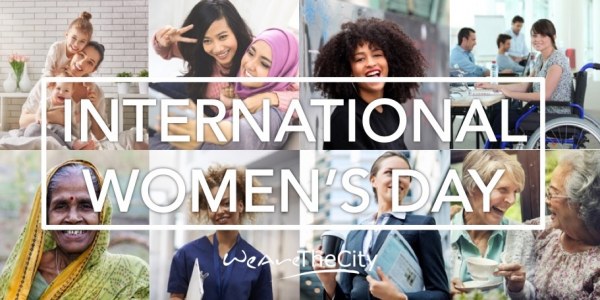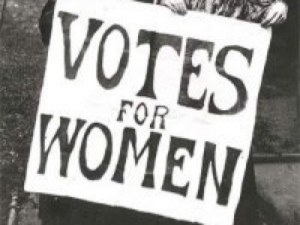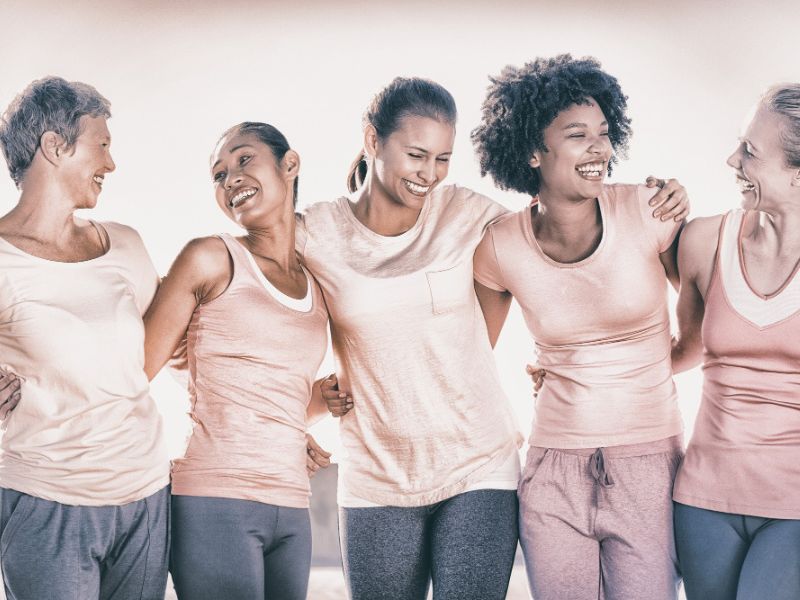It’s 2017; it’s been nearly 100 years since women were granted the vote in the UK; and it’s been 47 years since the Equal Pay Act was introduced.
So why do we still need a day to celebrate and champion women?
Each year International Women’s Day (IWD) is celebrated on March 8. Thousands of events occur to mark the economic, political and social achievements of women. Organisations, governments, charities, educational institutions, women’s groups, corporations and the media celebrate the day.
International Women’s Day is needed because we still have to have the conversations and raise awareness of gender inequality, taking place around the globe. Every day new statistics are released about the gender pay gap, sexual violence or the lack of women in a particular area.
Below are just some of the news stories that demonstrate why we still need International Women’s Day:
Over 30 per cent of women have experienced gender discrimination
 Despite government legislation and raised awareness around gender discrimination and sexism, it is reported that over 30 per cent of women have experienced some form of direct or indirect discrimination.
Despite government legislation and raised awareness around gender discrimination and sexism, it is reported that over 30 per cent of women have experienced some form of direct or indirect discrimination.
The survey found that 33.49 per cent had experienced sexist comments; 26.46 per cent were paid unequally; 25.53 per cent were overlooked for a job for being of childbearing age; 21.55 per cent overlooked for a job for having young children.
Gender pay gap in the UK will not close until 2041

A report released by PwC has found that the UK’s gender pay gap will not close until 2041. The study also suggests that if historic trends continue countries such as the United States and France won’t close their gap for another century, while Germany would not close theirs for another three.
The latest PwC Women in Work Index, has shown that slow but steady progress is continuing across OECD (Organisation for Economic Co-operation and Development) countries.
Average woman will have £47,000 less in pension pot than a man
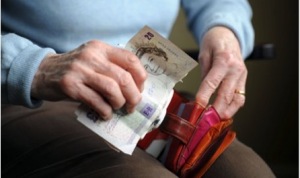 According to a new study, the average woman will receive £47,000 less in her pension pot than a man by the time she retires.
According to a new study, the average woman will receive £47,000 less in her pension pot than a man by the time she retires.
Zurich Insurance Company found that employers are contributing less to women’s pensions than men.
There are still too many ‘firsts’ for women
It’s been nearly 100 years since women were first allowed to vote and the female gender has gone on to achieve lots of remarkable things since then. However, in the 21st century where women are supposed to be equal to men, there are still a number of firsts that should no longer be surprising, such as:
- First woman in 1,000 years becomes a full member of St Paul’s Cathedral Choir
- Viola Davis becomes the first black woman to win an Oscar, Emmy and Tony award for acting
- Cressida Dick becomes the Metropolitan Police’s first female commissioner
- Maria Balshaw becomes the Tate’s first female director
- Liz Truss becomes the first female Lord Chancellor
- Hillary Clinton becomes first woman in 240 years to lead US presidential race for a major political party
Over 90,000 people in England and Wales are raped every year
 Over 90,000 people in England and Wales is raped every year – roughly 11 people every hour.
Over 90,000 people in England and Wales is raped every year – roughly 11 people every hour.
Despite these shocking statistics, only around 15 per cent of victims of sexual violence will report it to the police. It is also estimated that 29 per cent of rape victims tell no one, not even their close family or friends.
Over half of female MPs have been physically threatened by members of the public
 Over half of female MPs have been physical threatened by a member of public, a survey has revealed. Research by BBC Radio Five Live also found that nine out of ten female MPs had been abused online while 80 per cent have been verbally attacked.
Over half of female MPs have been physical threatened by a member of public, a survey has revealed. Research by BBC Radio Five Live also found that nine out of ten female MPs had been abused online while 80 per cent have been verbally attacked.
Alongside this, another survey revealed that over a third of adults would blame a woman for being raped if she was to go out late at night, wear short skirt or gets drunk.
100,000 women march through London against Trump, division, misogyny and racism
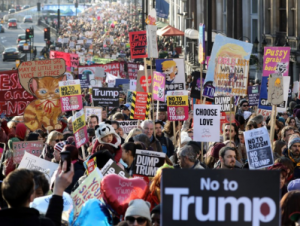 Over 100,000 women marched through London this weekend, to protest Donald Trump’s presidency and right-wing politics in all forms.
Over 100,000 women marched through London this weekend, to protest Donald Trump’s presidency and right-wing politics in all forms.
The event called, Women’s March On London, was one of hundreds of protests taking place on 21 January across the world. Marches took place in cities including Dublin, Cape Town, Budapest and Kolkata, with the biggest attendance turning out in Washington with an estimated half a million women protesting.
Both women and men still believe outdated stereotypes
 Both women and men still believe in outdated stereotypes, new research from Unilever claims.
Both women and men still believe in outdated stereotypes, new research from Unilever claims.
The research found that 77 per cent of men believe that a man is the best choice to lead a ‘high stakes’ projects. More surprisingly, the study also revealed that 55 per cent of the women surveyed believed this to be true as well.

